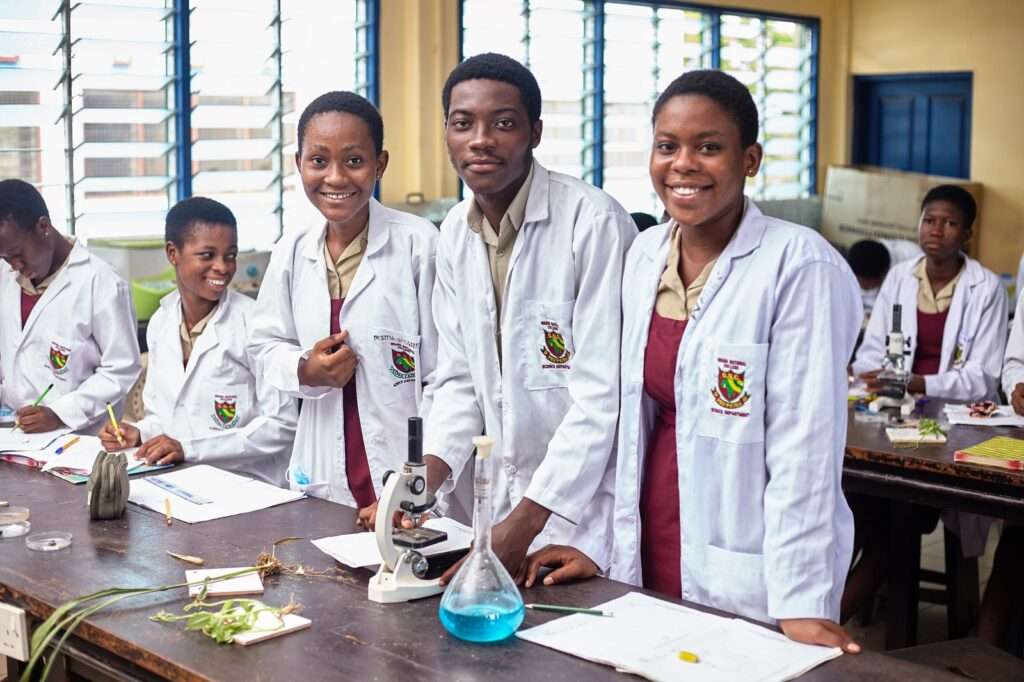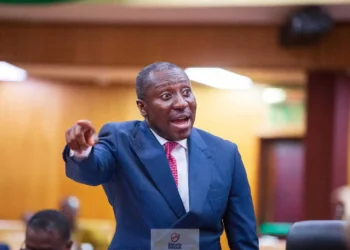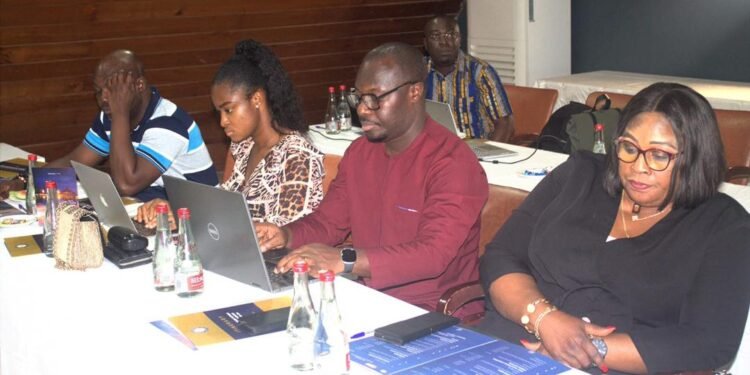Transitioning Ghana’s senior high schools from the current double-track system to a more stable single-track format will require massive infrastructural investment, according to the Vice Chairman of the Parliamentary Select Committee on Education, Hon. Joseph Kwame Kumah.
Speaking after a nationwide tour of selected senior high schools, Kumah—who is also the Member of Parliament for Kintampo North—stressed that infrastructure remains the main hurdle.
He warned that unless the issue is tackled comprehensively, efforts to reform the country’s secondary education system will be delayed.
“To transition senior high schools from double-track to single-track, each school requires at least a 12-unit classroom block, with some needing up to 20 units. Additionally, dining facilities designed for 600 students are currently accommodating over 4,500 students, resulting in meal serving in shifts.”
Hon. Joseph Kwame Kumah
According to him, the issue is more pressing in larger schools, where basic facilities such as dormitories and dining halls are significantly overstretched.
He further described the infrastructure deficits as a nationwide problem that cannot be solved piecemeal.

During the three-week tour, the Education Committee observed several schools where students were crammed into makeshift spaces, lacked functioning assembly halls, and faced poor sanitation due to overstretched facilities.
According to Kumah, one school they visited urgently needed an 18-unit classroom block, a 300-capacity girls’ dormitory, a boys’ dormitory, and a modern assembly hall to meet current needs.
However, progress was hindered by land encroachment, with portions of the school’s property occupied by private buildings. “We’re working to protect the remaining land.”
Systemic Overhaul Required Amid Double-Track Issues
Furthermore, Joseph Kwame Kumah called for a complete overhaul of Ghana’s senior high education model.
He emphasized that the double-track system, initially introduced as a temporary fix to accommodate large student numbers under the Free Senior High School (Free SHS) program, is now exposing structural weaknesses in the education system.
The MP expressed concern that if political polarization continues to interfere with the implementation of Free SHS policies, the program’s sustainability will be at risk.

“Sustaining the free senior high school program beyond the next eight years is uncertain if stalled projects aren’t addressed promptly. Delaying completion by 20-30 years could lead to program collapse.”
Hon. Joseph Kwame Kumah
He urged stakeholders to refrain from politicizing Free SHS and instead commit to long-term investment in school infrastructure.
Kumah emphasized that these developments are not merely a matter of policy preference but are essential for ensuring equitable access to quality education for future generations.
Kumah’s remarks were echoed by the Chairman of the Parliamentary Select Committee on Education, Hon. Peter Kwasi Nortsu-Kortoe, who led the delegation on its tour.
Nortsu-Kortoe commended heads of senior high schools for their resilience and dedication in managing overcrowded institutions under trying circumstances.
“We’re encouraged by the progress so far and commend the heads of institutions for their efforts despite challenges. To further support their work and eliminate the double-track system, we recommend that the government provide necessary facilities.”
Hon. Peter Kwasi Nortsu-Kortoe
He stressed that bipartisan consensus is critical to solving the infrastructure challenges posed by the double-track system.
According to him, both sides of the political divide must recognize that education infrastructure is a national priority, not a party agenda.
Nationwide Infrastructure Roadmap Needed
Meanwhile, education stakeholders have called for a national infrastructure roadmap that clearly outlines the timelines, funding sources, and monitoring mechanisms for completing abandoned school projects.
As such, Joseph Kumah recommended that such a roadmap should prioritize schools currently operating under the most severe constraints, especially those with incomplete buildings or encroached land.

Without timely intervention, the lack of proper facilities will undermine the benefits intended by the Free SHS initiative.
Experts argue that while the double-track system temporarily eased enrollment pressure, it cannot be relied upon as a long-term strategy.
Ghana’s growing youth population demands sustained investment in classrooms, dormitories, science labs, and digital infrastructure.
Additionally, communities across the country are calling on the Ministry of Education and the Ghana Education Service (GES) to accelerate efforts in completing stalled GETFund projects.
Many of these unfinished projects, they argue, could immediately reduce the burden on existing school facilities.
As discussions intensify on how to upgrade the education system, Kumah and his committee are pushing for swift and tangible commitments from the government.
The ultimate goal, he noted, is to make the single-track system the standard across all senior high schools, ensuring that quality education is not limited by space or politics.
READ ALSO: Starmer Scrambles To Save Brexit Reset Deal























